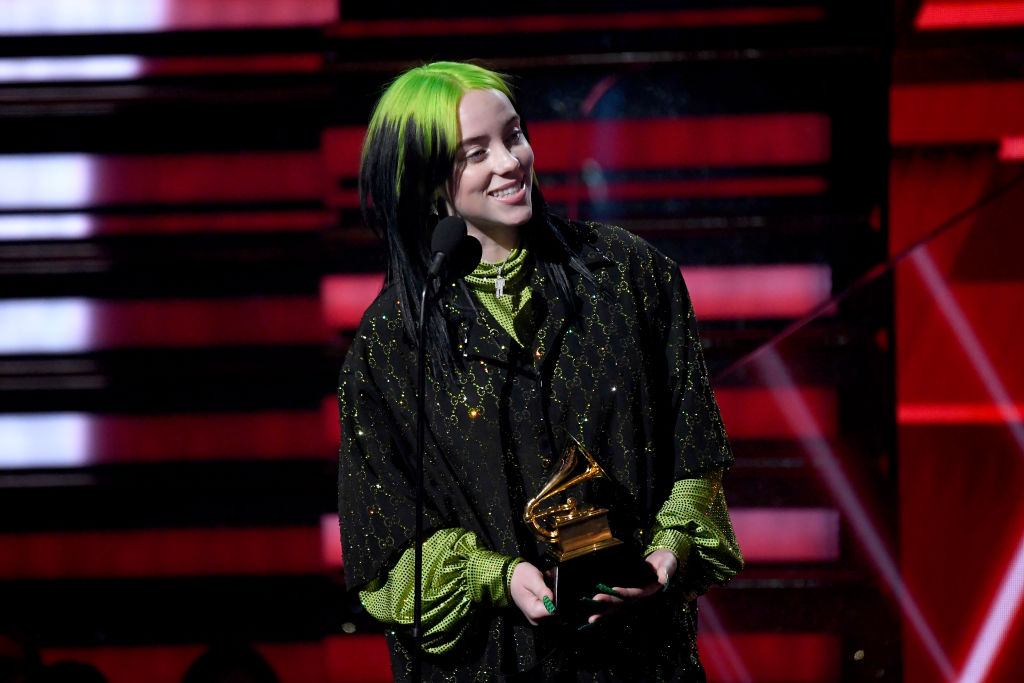There was already a dark cloud hanging over this year’s Grammy Awards due to the allegations of sexual misconduct, voting irregularities and discrimination by ousted Recording Academy CEO Deborah Dugan, but just hours before Sunday’s ceremony, another separate tragedy threatened to overshadow the proceedings at the Staples Center when it was announced that NBA legend Kobe Bryant and his 13-year-old daughter were among nine people killed in a helicopter crash.
After Lizzo kicked off the show with a medley of “Cuz I Love You” and “Truth Hurts,” which she dedicated to Bryant, host Alicia Keys took a moment to pay tribute to the late basketball star, saying, “We’re literally standing here, heartbroken, in the house that Kobe Bryant built. Right now, Kobe and his daughter Gianna and all of those that have been tragically lost today are in our spirit, and our hearts and our prayers.”
There were some head-scratching moments (chief among them, FKA Twigs pole-dancing during the Prince tribute instead of being allowed to sing) and some moving ones (Bonnie Raitt doing “Angel From Montgomery” never gets old). There were calls for change, diversity and inclusion, though no one mentioned Dugan by name, and interim Grammy president Harvey Mason Jr. was nowhere to be seen during the telecast. (You can read the complete list of winners here.) Overall, it was a grim reminder of just how much room there is for improvement within the organization — and these were the evening’s three biggest takeaways.
Billie Eilish makes history, sweeps the Big Four
It was a huge night for 18-year-old Billie Eilish, who took home five of the six awards she was nominated for, including an impressive sweep of the Big Four categories (Album of the Year, Record of the Year, Song of the Year and Best New Artist). She’s only the second person in history to complete the sweep, and she becomes both the first woman and the youngest person to do so. (Christopher Cross swept the Big Four in 1980.) To her credit, Eilish humbly accepted all the hardware; in her Album of the Year speech, she declared that Ariana Grande should have won.
Of course, Eilish’s triumph also means that Lizzo, who came into the night with the most nominations and was also nominated in each of the Big Four categories, failed to walk away with any of the major awards. She did, however, win Best Pop Solo Performance, Best Traditional R&B Performance and Best Urban Contemporary Album — the latter being a controversial honor that is often seen as a consolation prize for black artists the Academy fails to nominate or recognize in the pop categories and the Big Four.
The evening’s strongest statements were made offstage
While some artists danced around Dugan’s allegations and the Recording Academy’s obvious diversity issues, Tyler, the Creator tackled the Grammys’ treatment of black artists head-on while talking to reporters backstage after winning Best Rap Album for IGOR. “I’m half and half on it,” he said. “On one side, I’m very grateful that what I made could be acknowledged in a world like this, but also, it sucks that whenever we — and I mean guys that look like me — do anything that’s genre-bending or that’s anything, they always put it in a rap or urban category, which is — I don’t like that ‘urban’ word. That’s just a politically correct way to say the n-word to me.”
“When I hear that, I think ‘why can’t we just be in pop?’ Half of me feels like the rap nomination was a backhanded compliment,” he continued. “Like, oh, my little cousin wants to play the game, let’s give him the unplugged controller so he can shut up and feel good about it. That’s what it felt like a bit.”`
Even on a somber night, the Grammys can’t help but pay tribute to themselves
Perhaps the most telling moment of the night came around 11:30 p.m. EST, when the show was already running long and retiring Grammys executive producer Ken Ehrlich received an elaborate tribute that featured performances by Camila Cabello, Cyndi Lauper, ballerina Misty Copeland, Gary Clark Jr. and Common.
Ehrlich got into a public spat with Ariana Grande last year, and in a year plagued by serious allegations and tragedy — not to mention in a melancholy Grammy show that, in addition to the Bryant tributes, featured a performance dedicated to the late Nipsey Hussle and the emotional debut of a Demi Lovato song penned four days before her overdose — having a guy who represents the old white-guy guard of the Recording Academy produce a lengthy tribute to himself felt a little tone-deaf.
It’s fitting, of course, that the Academy would devote more time to Ehrlich than its two biggest categories, which were presented almost as an afterthought as the self-described “music’s biggest night” inched closer and closer to midnight. Keys wrapped up the evening with perhaps its biggest understatement: “We got a lot to change, we got a lot to do.”
This article appeared in an InsideHook newsletter. Sign up for free to get more on travel, wellness, style, drinking, and culture.

























